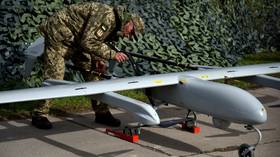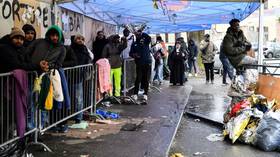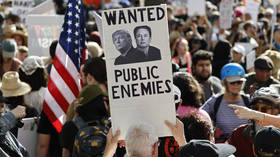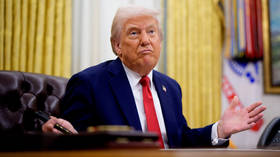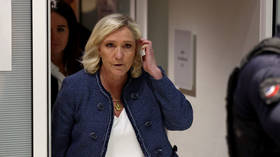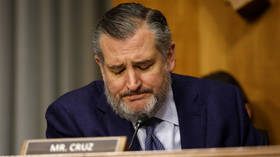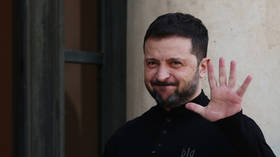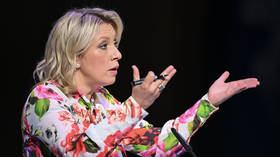UK backs Ukrainian attacks on Russian soil
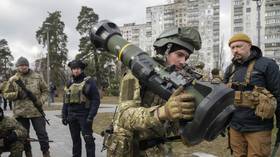
Ukrainian forces may use UK-supplied weapons to attack targets on Russian soil, British Armed Forces Minister James Heappey said on Tuesday. Moscow has cautioned the West against escalating what it sees as a Russia-NATO “proxy war” in Ukraine, after a series of attacks on its territory.
“It is completely legitimate for Ukraine to be targeting in Russia's depth in order to disrupt the logistics that if they weren't disrupted would directly contribute to death and carnage on Ukrainian soil,” Heappey told Times Radio.
“There are lots of countries around the world that operate kit that they have imported from other countries; when those bits of kit are used we tend not to blame the country that manufactured it, you blame the country that fired it,” he added.
Asked whether he supported such attacks within Russia’s borders, Heappey replied “of course.”
Russian officials have accused Ukrainian forces of using helicopters, artillery and drones to attack targets within Russia in recent weeks. An oil depot in Bryansk, 150km from the Ukrainian border, also caught fire on Monday. While some online analysts have suggested that a Ukrainian missile hit the facility, Moscow has not confirmed these rumors, and Russian officials are investigating the blaze.
The UK has flooded Ukraine with thousands of anti-tank missiles, and Prime Minister Boris Johnson recently announced a £100 million ($130 million) package of heavy weaponry for Kiev, including anti-air missiles, autonomous drones and armored vehicles. MIlitary aid has also poured into Ukraine from EU and NATO countries, with the US donating $3.7 billion worth of arms since Russia’s operation in Ukraine began in February, counting the latest $300 million package announced on Monday.
Moscow claims to have destroyed several warehouses and depots full of this Western hardware, and as more continues to arrive, Russian Foreign Minister Sergey Lavrov on Monday condemned the West for using these shipments to wage a “proxy war” against Russia. Lavrov said that the risk of nuclear conflict was now “considerable,” adding “we must not underestimate” the chances of a third world war.
Heappey, who as Armed Forces Minister is essentially second in command at the Ministry of Defense, dismissed Larov’s warning. The chances of nuclear war, he insisted, are “vanishingly small.”
Heappey also maintained that Ukraine, given enough foreign weapons, can win the ongoing conflict. However, amid Russia’s recent advances in eastern and southern Ukraine, Prime Minister Boris Johnson conceded last week that a Russian victory is a “realistic” outcome.
Russia attacked the neighboring state in late February, following Ukraine’s failure to implement the terms of the Minsk agreements, first signed in 2014, and Moscow’s eventual recognition of the Donbass republics of Donetsk and Lugansk. The German and French brokered protocols were designed to give the breakaway regions special status within the Ukrainian state.
The Kremlin has since demanded that Ukraine officially declare itself a neutral country that will never join the US-led NATO military bloc. Kiev insists the Russian offensive was completely unprovoked and has denied claims it was planning to retake the two republics by force.
